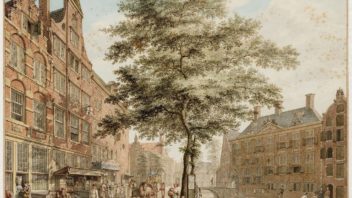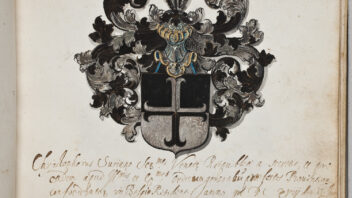Virtual Interiors financed by NWO
The NWO awarded a grant of €625,000 to the joint Huygens ING and UvA project ‘Virtual Interiors as Interfaces for Big Historical Data Research: Spatially Enhanced Publications of the Creative Industries of the Dutch Golden Age’ on 19 December.
The aim of the project is to create accessible user interfaces for big data that is increasingly being used in humanities research, the cultural heritage sector and the creative industries.
Virtual interiors of the Golden Age
The project reuses big data on the production and consumption of cultural goods of the Dutch Golden Age to create digital maps and virtual interiors of houses from that period. With these, users can see which consumer goods, such as paintings, musical instruments, linen, etc., the inhabitants of Amsterdam had in their houses. The big data comes from the notarial deeds of the Amsterdam City Archives and other collections and is accessed through another large project: Golden Agents. Creative Industries and the Making of the Dutch Golden Age (goldenagents.org).
Visualisation of uncertainty factor
Because the information on the objects in these houses varies widely, it is often difficult to identify them and to arrive at a reliable depiction of the interiors of the Golden Age. Sometimes the subject of the painting and its maker are mentioned by name, but much more often only numbers of objects are mentioned. The interfaces of the virtual interiors draw the users’ attention to these uncertainties and differences in the reliability of the historical data by visualising uncertainty factors. Virtual Interiors’ will also provide a proof of concept for Amsterdam Time Machine, a collaborative project led by Julia Noordegraaf (UvA-CREATE) that received funding (see this post) on 20 December to be implemented in the CLARIAH infrastructure being developed at the HuygensING.
Collaboration with commercial partners
The knowledge and experience gained in the development of virtual interiors is important both for the development of new digital methods in the humanities and, for example, in the creative industry. For example, annotation of virtual spaces is also important for research into new forms of publication or for games and the like. For this reason, the applicants for the research, Charles van den Heuvel (p.i.) from Huygens ING and Julia Noordegraaf (UvA-CREATE) and Gabri van Tussenbroek (UvA-Gemeente Amsterdam, Archeologie en Monumenten) are working closely together with their commercial partners Brill and the Netherlands Institute for Sound and Vision.
The grant will enable the appointment of a PhD student at Huygens ING, a junior researcher at the University of Amsterdam and two post-doctoral researchers who will work closely with Brill and the Netherlands Institute for Sound and Vision.




